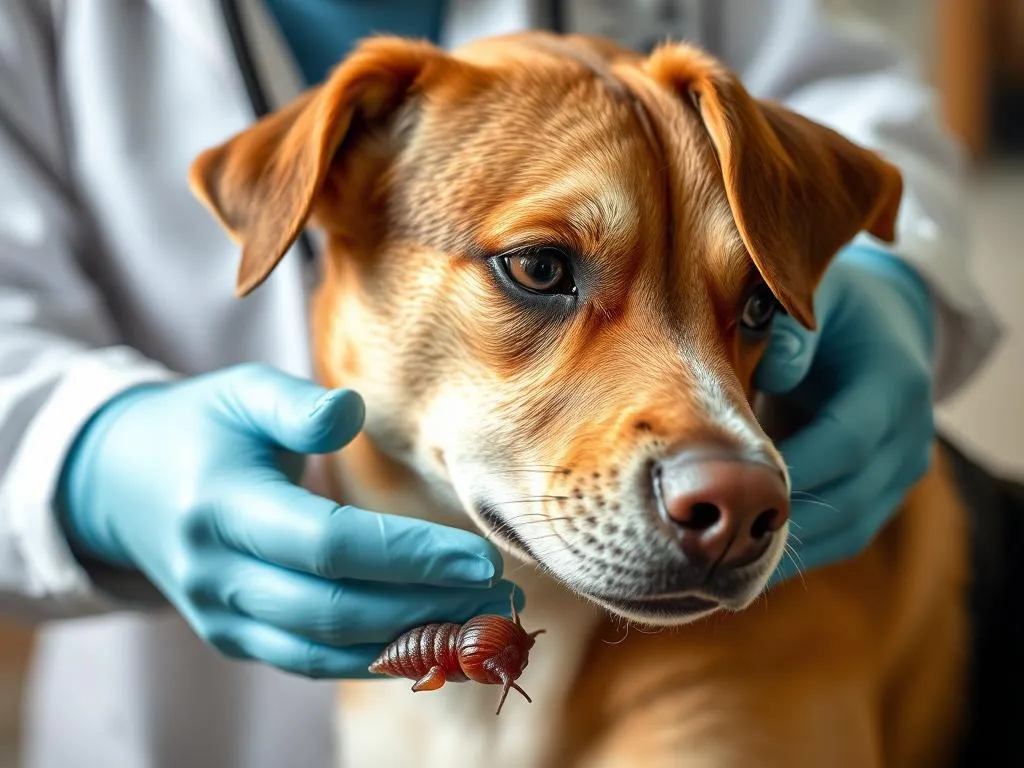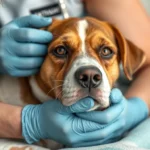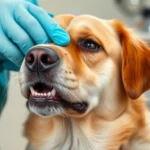
Dogs often have a curious nature, leading them to chew on all sorts of things, including slugs. This behavior can be concerning for pet owners, especially when it comes to the potential health risks involved. If you’ve found yourself saying, “my dog ate a slug, vet answer,” it’s crucial to understand the implications and necessary actions to take.
Understanding the Risks of Dogs Eating Slugs
Common Slug Species
Slugs are commonly found in gardens, yards, and damp areas. In many regions, you’ll encounter species like the garden slug (Arion hortensis) and the brown garden snail (Cornu aspersum). These creatures thrive in moist environments, often hiding under leaves or stones during the day and coming out at night. Their diet primarily consists of decaying plant matter, making them a frequent visitor in gardens.
Potential Toxins in Slugs
One of the most significant concerns regarding slugs is the potential toxins they may carry. Slugs can be hosts for parasites, most notably the lungworm (Angiostrongylus vasorum), which can cause severe health issues in dogs. Ingesting slugs may lead to the transmission of these parasites, resulting in lungworm disease, which can manifest as coughing, difficulty breathing, or even neurological symptoms.
Other toxins may be present depending on the environment where the slug resides. For example, slugs can accumulate toxins from certain plants or chemicals in the garden, which can also pose risks to your dog’s health.
Symptoms to Watch For
If your dog has ingested a slug, it’s essential to monitor them for symptoms. While some dogs may experience mild reactions, others could face more severe health issues. Common symptoms to watch for include:
- Mild Symptoms:
- Vomiting
- Diarrhea
- Loss of appetite
-
Lethargy
-
Severe Symptoms:
- Persistent coughing
- Difficulty breathing
- Neurological issues (e.g., seizures, tremors)
- Signs of abdominal pain (whining, restlessness)
If you observe any of these symptoms, especially within a few hours of ingestion, it’s essential to seek veterinary advice promptly.
Immediate Actions to Take
Assessing the Situation
If you catch your dog in the act of eating a slug, the first step is to assess the situation. Determine the size and type of slug consumed. While many slugs may not be toxic, knowing the species can aid your vet in assessing potential risks. If you’re unsure about the type, don’t panic; it’s still best to err on the side of caution.
Contacting a Veterinarian
Reaching out to a veterinarian should be your next step. Provide them with crucial information, including:
- Your dog’s weight and age
- The time of ingestion
- The type of slug, if known
- Any symptoms your dog is exhibiting
This information helps the veterinarian gauge the urgency of the situation and decide on the best course of action.
Home Remedies and First Aid
While professional veterinary advice is always the best option, there are a few things you can do while waiting for help:
- Monitor your dog closely. Keep an eye on any changes in behavior or symptoms.
- Do not induce vomiting unless instructed by your veterinarian. In some cases, this could cause more harm than good.
- Keep your dog calm and comfortable. Avoid any strenuous activity, as this could exacerbate any potential symptoms.
Diagnostic Procedures by Veterinarians
Physical Examination
When you visit the vet, expect a thorough physical examination. The veterinarian will check for any immediate signs of distress or illness. This may involve assessing your dog’s overall health, examining their eyes, ears, and mouth, and palpating their abdomen to check for pain or unusual masses.
Treatment Options
Depending on the findings from the physical examination and any symptoms, the vet may recommend various diagnostic tests, such as:
- Fecal examination to check for parasitic infections.
- Blood tests to assess overall health and check for any signs of infection or toxin exposure.
If your dog is diagnosed with lungworm or another parasitic infection, treatment may include:
- Deworming medications to eliminate parasites.
- Supportive care such as fluids and nutritional support if your dog shows severe symptoms.
In severe cases, hospitalization may be necessary to monitor your dog and administer more intensive treatments.
Prevention Strategies
Keeping Your Dog Slug-Free
Preventing slug ingestion is key to maintaining your dog’s health. Here are some tips to create a slug-free environment:
- Regularly clean your yard. Remove debris, leaves, and other organic matter where slugs may thrive.
- Use slug deterrents. Organic options include diatomaceous earth or copper barriers, which deter slugs without harming your pets.
- Supervise outdoor time. If your dog has a tendency to eat strange objects, keep a close eye on them during walks or playtime in the yard.
Regular Vet Check-Ups
Regular veterinary check-ups are essential for your dog’s overall health. These visits allow vets to monitor for parasites and ensure your dog is up-to-date on vaccinations and preventive medications. Discuss any concerns you have about your dog’s behavior, including eating slugs or other harmful materials.
Frequently Asked Questions (FAQs)
Can slugs cause long-term health issues in dogs?
Yes, slugs can potentially cause long-term health issues, especially if they carry lungworm or other parasites. Ingesting infected slugs can lead to chronic respiratory problems or neurological symptoms if untreated. Regular veterinary care is important to monitor for any lingering effects.
What if my dog shows no symptoms after eating a slug?
Even if your dog shows no immediate symptoms, monitoring them closely is essential. Some health issues may take time to manifest. Keep an eye out for changes in behavior, appetite, or energy levels, and consult your veterinarian if any concerns arise.
Are there specific breeds more susceptible to slug ingestion?
While all dogs can potentially consume slugs, certain breeds known for their scavenging behavior, such as hounds and terriers, might be more prone to this habit. However, any dog can be curious enough to eat a slug, so vigilance is necessary regardless of breed.
Conclusion
If you find yourself in the situation of thinking, “my dog ate a slug, vet answer,” remember to remain calm and act swiftly. Understanding the risks associated with slug ingestion can significantly impact your dog’s health. By knowing the symptoms to watch for, taking immediate action, and seeking veterinary care when necessary, you can help ensure your furry friend stays safe and healthy. Being proactive about prevention strategies will also protect your dog from future incidents, allowing them to enjoy their outdoor adventures without worry.









